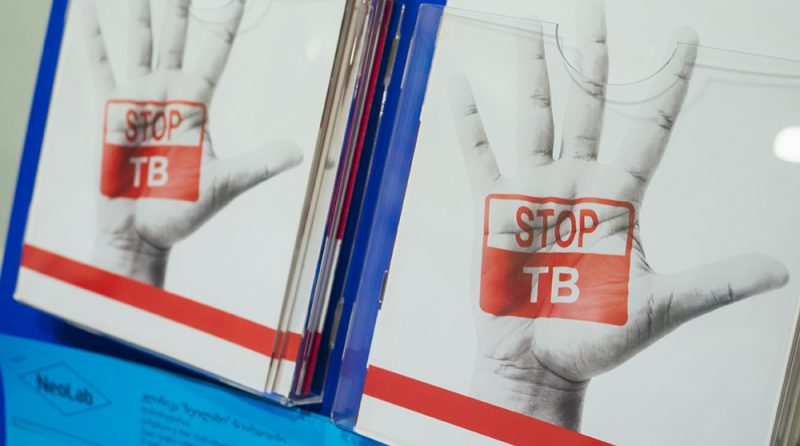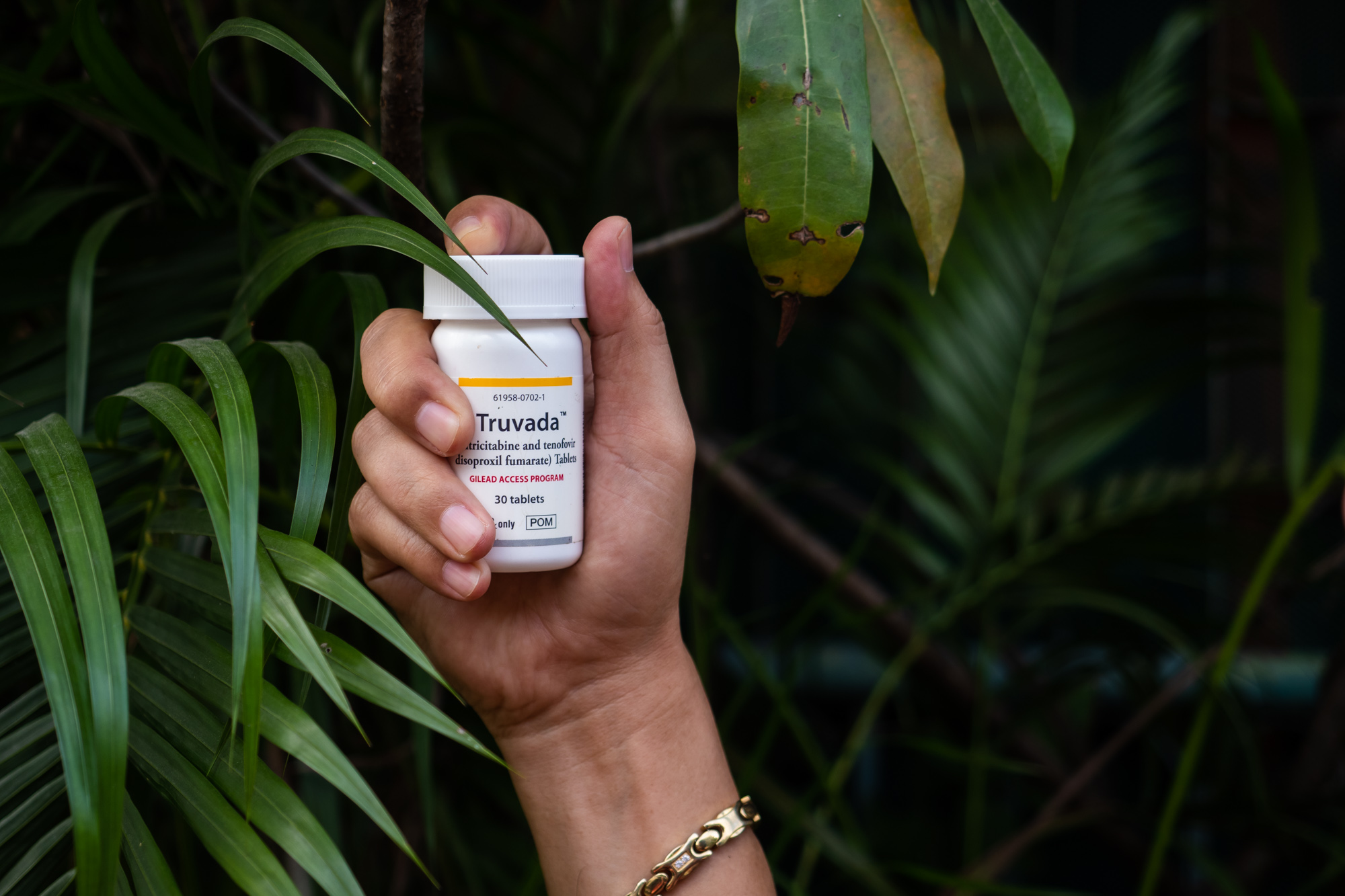When Petro was a teenager selling sex, HIV treatment didn’t exist, at least not as far as he was aware, and the risks weren’t well known. Now, the options that could have benefitted Petro do exist, but people aren’t accessing them. Why?
He shares an insight to the realities and barriers facing MSM chemsex workers, and the reasons why less than 1,000 people have accessed PrEP in Ukraine.
Interviewed by Gemma Taylor.
“When I first sold sex I hadn’t heard of HIV and even if I had there was little protection available,” says Petro, now 38, from Odessa, a Ukrainian city on the Black Sea coast.
“I grew up very poor. Sex work helped me fund my life and my studies in biology.”
“I asked my doctor for a HIV test after I saw a film on TV, Our Sons, an American movie, in which a guy is dying of AIDS. It was around the year 2000 and I was 17 or 18. The doctor told me the result was positive, and that was it. I left with no information or support. It was disorientating.”
“My boyfriend at the time was a captain in the army. He was shocked and our relationship ended because of it. It would be about 10 years before I got into another relationship.”
“Initially I stopped going to university. I was depressed and waited for death, but after two months, nothing had happened and I was still alive,” laughs Petro. “So I decided to continue my studies and look for support. I called a hotline and asked about organizations supporting people with HIV.”
“The group I went to was created by people living with HIV who use drugs. There were not the same range of HIV projects that there are now. It was helpful, we got a lot information, we translated articles on the internet about ART and different medicines.”
Online support – chemsex workers
Petro relocated to Kyiv in 2007 and is now a regional specialist at 100% LIFE, one of our campaign partners, and the largest patient organization in Ukraine. Independently of his work role, he has also has a secure online support group with 58 MSM chemsex workers as members. “It’s my duty to help them. If they have any problems I refer them to a friendly medical worker or friendly lawyers.”
“I’ve seen how things have changed. A lot of people moving to Kyiv now are internally displaced people (IDP) because of the war. Some people I know came to find work in the big city, and what they found they could do was sex work.”
“Things have changed with sex work too. I work with MSM sex workers who use drugs. In my time, alcohol was commonly used and sometimes ketamine, but now chemsex parties are much more popular.”
“The idea of safe sex is not very realistic. How many people are there, or how many hours or days it will go on for, depends on who is paying.”
“These drugs stop you from feeling tired and increase confidence so you can have more sex, it helps people to keep going and see more clients. There are more and more new types of drugs available, which are often experimental, so people are less prepared for the effects.”
While recreational drugs are widely and easily available, the prescription drug PrEP is not. Only a maximum of 1,000 people have accessed the HIV drugs, tenofovir and emtricitabine, as a pre-exposure prophylaxis (PrEP), through a number of small, but welcome, initiatives.
There are an estimated 86,600 sex workers in Ukraine, and 179,400 MSM in Ukraine. The overall HIV prevalence rate is 1%. This jumps to 5.2% among sex workers and 7% among MSM. This demonstrates the higher risk, which due to the impact of stigma and discrimination upon people’s lives, and Petro believes the prevalence rates for sex workers are underestimated. So why, when there is such demand, is the number of people accessing PrEP so small?
Arbitrary pricing and prejudice – comparing Ukraine and Russia
 “PrEP could really help but it’s about getting it to people. The MSM I support will not access traditional services as they are afraid of being prosecuted either as sex workers and drug users. They could ask for help and instead receive 5-7 years in prison. It’s too dangerous to ask.”
“PrEP could really help but it’s about getting it to people. The MSM I support will not access traditional services as they are afraid of being prosecuted either as sex workers and drug users. They could ask for help and instead receive 5-7 years in prison. It’s too dangerous to ask.”
“The Ministry of Heath should invest in PrEP, but look for small groups such as sex worker support groups to provide to people. Only peer to peer support, like mine, can get the treatment to people who need it. They will not go to a clinic.”
“The purpose of LGBTQ+ support groups, like my Facebook group, is not to tell people how to behave but to provide safer conditions. PrEP could make people safer.”
A patent has not been applied for in Ukraine, so the country procures generic tenofovir/emtricitabine, for around $5.50 (USD) per pack. Now that pilot projects have ended, Ukraine has an opportunity to build capacity and design programs to reach people with PrEP, and reduce the number of new HIV infections, if recommendations like Petro’s, about relying on peer to peer programmes, are factored in.
In neighbouring Russia, where we also work, this would currently be unachievable.
Not only does Russia also have discriminatory laws and/or attitudes to homosexuality, sex work and drug use, which pose barriers to HIV prevention services, but additionally the amount charged for branded tenofovir/emtricitabine (Truvada) is roughly 40x the amount charged for generics.
Russia is part of the Eurasian Patent Convention (EAPC) where Gilead Sciences has filed for patents. While a lack of patent registration is good for Ukraine, as it means that the country can pay a fair price, comparing the countries demonstrates the arbitrary nature of patent applications and the inflation of prices, even at the filing stage before a patent is granted or rejected.
In Russia, NGOs have opposed Gilead’s patent on the grounds that it lacks novelty and industrial applicability and on 3 September 2020, 25 patient organizations published an open letter to Gilead Sciences, urging the pharmaceutical company to disclaim its patent rights.
Civil society in Ukraine also has a stellar track record in opposing unmerited patents (which could explain why Gilead’s strategy has not included specifically filing for an unmerited patent here).
The work of 100% LIFE’s technical and legal experts is bringing down the price of a number of essential medicines and increasing access to life-saving treatment. The amount of people receiving ART has increased as a result of this work, although it’s still estimated that half of all people who need HIV treatment in Ukraine are without access.
“A year to forget”
Petro himself was without HIV treatment until after he moved to Kyiv in 2007. “There was no therapy available in Odessa at that time.”
“Before I could start treatment I was diagnosed with TB. I was ill with TB because of my low CD4 count. It was just 170. I was very ill.” (A CD4 count below 200 indicates serious immune damage.) “Despite my health being impacted by HIV, I had to undergo TB treatment before receiving medication for HIV.”

“I don’t remember that year. I forgot lots of things because it was very toxic [TB] medicine. It was a year to forget.”
“Since starting ARVs, I have changed treatment due to side-effects. One one drug, my side-effects included depression, insomnia and hallucinations for 8 or 9 months. One another drug I had stomach problems and lipodystrophy, and a severe drop in calcium with another. Now I’m on Aluvia which is better for me.”
Lopinavir/ritonavir (brand name Aluvia or Kaletra) is a drug which 100% LIFE has been fighting for price reductions on for years. AbbVie, the patent-holder, refused to back down despite knowing the price was a barrier to more people receiving treatment, although recently during the COVID-19 pandemic it was reported that the company would no longer enforce patents.
“You should have different options – for different people,” says Petro.

